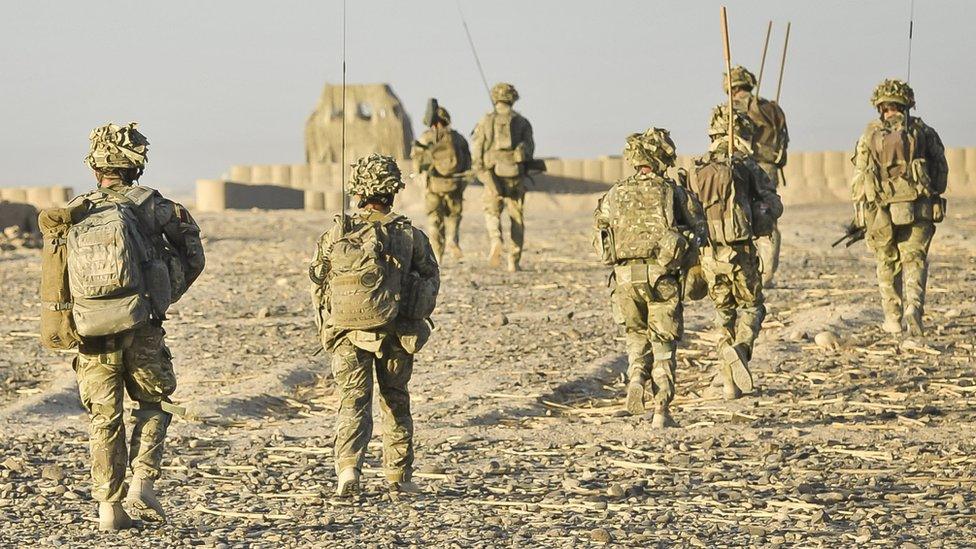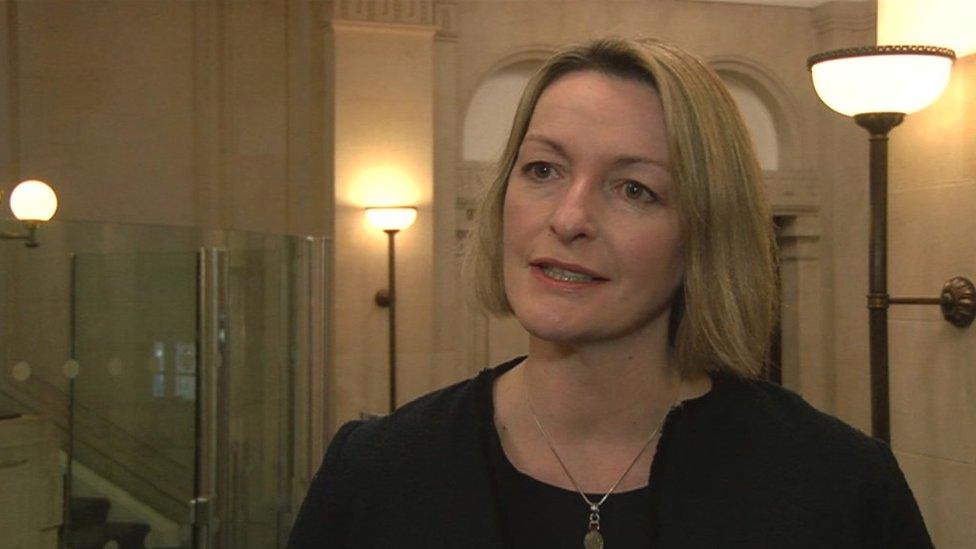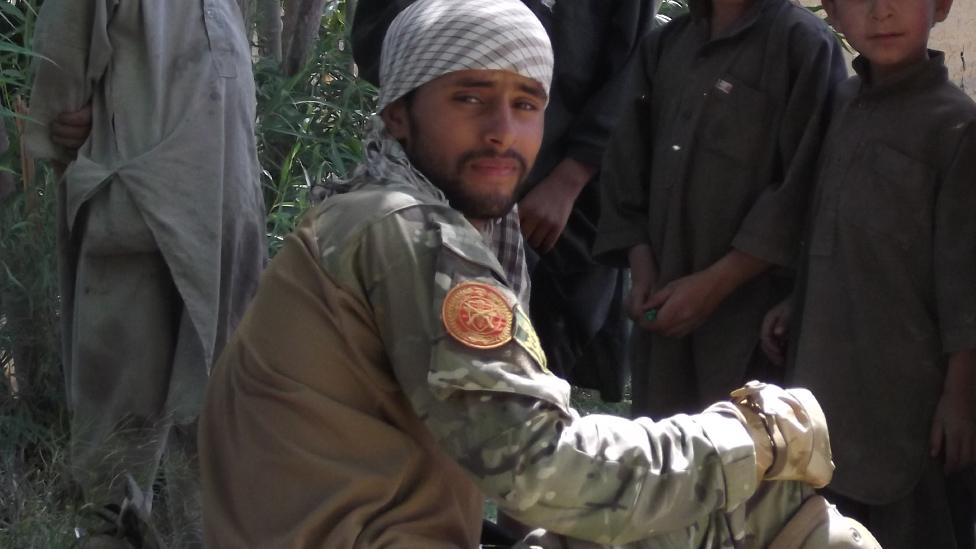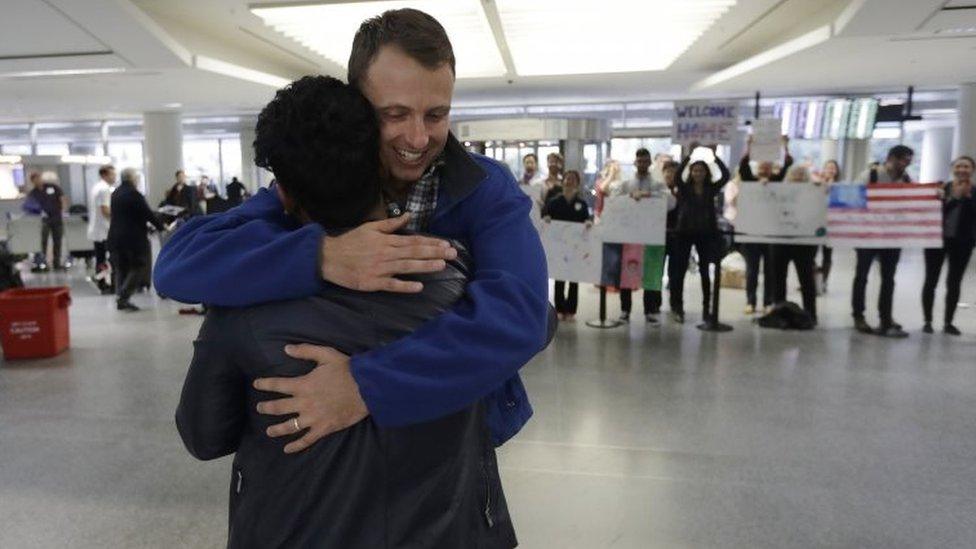Afghan interpreters' UK immigration rules 'anguish'
- Published

Afghan interpreters worked with the Army on the frontline in Helmand Province
Afghan interpreters who helped British troops fighting the Taliban need help bringing their families to live with them in the UK, a Welsh MP has said.
Newport East MP Jess Morden told BBC Wales men who risked their lives for Britain should not struggle getting visas for their wives and children.
A scheme allowed ex-interpreters to bring their family to the UK if they all came at the same time.
Ministers said they were looking again at how to make the process easier.
About 400 of the 3,500 Afghan civilians who were interpreters for the British Army in Afghanistan moved to the UK under the ex-gratia redundancy scheme, set up in 2013 as a "debt of gratitude" which recognised the danger of the work and the risk of reprisals.
But Ms Morden told BBC Sunday Politics Wales many were facing "stress and anguish" because they could not bring their families with them straight away for financial, cultural and security reasons.
She said they were going through "rigid and strict" immigration rules for spouses, with some unable to meet eligible criteria, especially the English language requirement.
"Because of what they've done for us, and because of how they put themselves out and put themselves in great danger, we'd promised them a scheme that just hasn't delivered for some of them," she said.
In 2018, the Home Office said it would look into the issue of family relocation but Ms Morden said it needs resolving as soon as possible.
"Every day it goes on, it's more stress and anguish for those interpreters who have settled in Newport who are missing their families and were promised something that hasn't been delivered," she said.

Jess Morden raised the matter in Parliament in July
One former interpreter living in Newport did not want to give his name because of the danger to himself and his family in Afghanistan.
He said bringing his wife and son with him when he came over a couple of years ago would have endangered all their lives.
"Not even my wife knew at the time that I was an interpreter with the British troops. I was telling my friends that I was going to Europe as an illegal immigrant," he said.
"In Afghanistan, you cannot just tell people that me and my wife are going across in illegal ways. Obviously, people can think really easily 'oh you are lying…yeah he was the one working for British forces'."
He said he did not realise until he arrived in the UK how strict the rules would be for them to join him.
"[My wife] does not even know her ABC letters. Afghanistan is not facilitated as much as UK is - you cannot say there are part time courses or night time courses.
"It is very hard being away from family. I've been two times to the doctors for being stressed."
The Home Office said: "We remain committed to allowing Afghan interpreters relocating to the UK to do so with their families.
"We are looking again at what more can be done to make this process easier."
- Published26 May 2018

- Published4 May 2018

- Published9 February 2017
